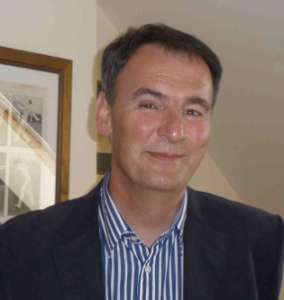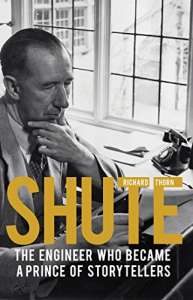
Tell us about your book.
My latest book is a biography of the engineer turned novelist Nevil Shute. He was a writer whose books were frequently looked down on by literary critics and yet when died in 1960 he was one of the best selling novelists of his day. Whether it was a book written to entertain such as A Town Like Alice or one with a more serious message like On the Beach, in the 1940s and 50s the publication of the latest Shute novel soon became a much anticipated event for both his publishers and many fans. There was however more to Shute than his literary output, a great deal more in fact.
This book explores the life and work of an extraordinary man who began his professional life as a shy, rather studious aeronautical engineer and ended it as a prince of storytellers.
Why did you choose to self-publish?
For probably the most common reason, I could not find a publisher who was interested in the subject.
What tools or companies did you use, and what experience did you have?
I use Scrivener as a writing platform, a wonderful piece of software that makes it so easy to reorganize and restructure as your thought patterns change. As far as a company was concerned, I went with Troubador Publishing. They were totally upfront about all the costs involved, extremely easy to work with and they produced a book I was really happy with.
Yes, but I will still try to attract a mainstream publisher first.
What do you think are the main pitfalls for indie writers?
To cut corners. I believe an external editor is desirable once a first draft is completed, and a proof reader is essential. Neither are cheap, and it is a great temptation to do these things yourself. My advice is don’t.
As a writer, what is your schedule? How do you get the job done?
Like Nevil Shute I treat a book as a project. Lots of up front planning and good time management. I am not a believer in waiting for inspiration to strike, it is necessary to write regularly each weekday. When working on a book Shute wrote from 9.00am – 1pm every day, and would sit at his desk even if there was little to show for it.
Tell us about the genre you wrote in, and why you chose to write this sort of book.
Biography attracted me because, it is based on factual information (which as an engineer I am used to) and yet the genre also allows me to use my imagination.
Who are your biggest writing inspirations and why?
My favourite living authors are Peter Ackroyd, Sebastian Faulks, Ian McEwan and Peter Carey. I am in awe of all four both for their imagination and use of language.
How do your friends and family get involved with your writing? What do they think of your book?
My wife (also an academic) is the best reviewer of my writing that I could wish for. I read everything I write out aloud to her at least twice during a book’s development. She soon tells me if I am writing nonsense.
What are your plans now your book is published?
I have already started researching and writing my next book. It is about another of my passions – cricket. It is concerned with the year 1970, a time when international cricket faltered, and is a wonderful mix of sport and politics. If any publisher out there is interested…
Links
Author Site
Amazon
Troubador
Goodreads
Get an Editorial Review | Get Amazon Sales & Reviews | Get Edited | Get Beta Readers | Enter the SPR Book Awards | Other Marketing Services























Leave A Comment